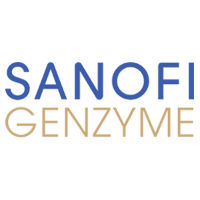Request Demo
Last update 08 May 2025

ORPHELIA Pharma SAS
Last update 08 May 2025
Overview
Tags
Congenital Disorders
Skin and Musculoskeletal Diseases
Neoplasms
Small molecule drug
Disease domain score
A glimpse into the focused therapeutic areas
No Data
Technology Platform
Most used technologies in drug development
No Data
Targets
Most frequently developed targets
No Data
| Top 5 Drug Type | Count |
|---|---|
| Small molecule drug | 2 |
| Top 5 Target | Count |
|---|---|
| DNA | 1 |
| GABA-T(Gamma-amino-N-butyrate transaminase) | 1 |
Related
5
Drugs associated with ORPHELIA Pharma SASTarget |
Mechanism POLA1 inhibitors [+3] |
Active Org. |
Originator Org. |
Active Indication |
Inactive Indication |
Drug Highest PhaseApproved |
First Approval Ctry. / Loc. United States |
First Approval Date28 Dec 2004 |
Target |
Mechanism GABA transaminase inhibitors |
Active Org. |
Originator Org. |
Active Indication |
Inactive Indication- |
Drug Highest PhaseApproved |
First Approval Ctry. / Loc. Mexico |
First Approval Date05 Apr 2004 |
8
Clinical Trials associated with ORPHELIA Pharma SASNCT05126914
Multicentre Real-life Follow-up Study of Rare Epileptic Syndromes in Children and Adolescents
Rare epilepsies as a whole account for 20-30% of epilepsies, but knowledge about prognostic factors is currently limited. This means that it is difficult to provide adequate information to families at diagnosis and during follow-up. Prognostic factors are also important for management as they can have an impact on the patient's outcome (time to intervention, choice of one molecule over another, etc.). Finally, few treatments are currently available for these epilepsies. One of the limitations to the development of treatments is the lack of real life data as it is difficult to create reliable primary endpoints such as the rate of patients becoming seizure free naturally compared to a therapeutic intervention.
The aim of this real-life study is to evaluate the response to treatment as well as to see the evolution of cognitive and psychiatric comorbidities. As explained above, there are very few randomised trials except for 3 rare epilepsies (infantile spasm syndrome, Dravet syndrome, Lennox-Gastaut syndrome). This has led to the virtual absence of management recommendations, including for the three syndromes mentioned above, where attempts at treatment algorithms have been proposed, although these have not been able to be considered as evidence-based recommendations.
As a result, there is some diversity in the management of rare epilepsies from one centre to another. However, this diversity in management can be an asset in a real-life study. This will make it possible to compare different management methods, both in terms of seizure control and medium-term outcome.
The aim of this real-life study is to evaluate the response to treatment as well as to see the evolution of cognitive and psychiatric comorbidities. As explained above, there are very few randomised trials except for 3 rare epilepsies (infantile spasm syndrome, Dravet syndrome, Lennox-Gastaut syndrome). This has led to the virtual absence of management recommendations, including for the three syndromes mentioned above, where attempts at treatment algorithms have been proposed, although these have not been able to be considered as evidence-based recommendations.
As a result, there is some diversity in the management of rare epilepsies from one centre to another. However, this diversity in management can be an asset in a real-life study. This will make it possible to compare different management methods, both in terms of seizure control and medium-term outcome.
Start Date01 Dec 2021 |
Sponsor / Collaborator |
EUCTR2020-003733-38-DE
TEMOkids study (ORP-TMZ-I- b): A Population pharmacokinetic, acceptability and safety study for KIMOZO, a paediatric oral suspension of temozolomide - TEMOkids study
Start Date16 Jul 2021 |
Sponsor / Collaborator |
NCT04610736
TEMOkids Study: A Population Pharmacokinetic, Acceptability and Safety Study for KIMOZO, a Paediatric Oral Suspension of Temozolomide
Non-randomized, international, multi-centre, open-label, single arm study to determine the pharmacokinetic (PK) parameters of a single dose of an oral suspension of temozolomide (KIMOZO) in the pediatric population aged 1 year and over.
Start Date16 Mar 2021 |
Sponsor / Collaborator  ORPHELIA Pharma SAS ORPHELIA Pharma SAS [+1] |
100 Clinical Results associated with ORPHELIA Pharma SAS
Login to view more data
0 Patents (Medical) associated with ORPHELIA Pharma SAS
Login to view more data
6
Literatures (Medical) associated with ORPHELIA Pharma SAS01 Jan 2023·Therapies
Drug repurposing: From the discovery of a useful pharmacological effect to making the treatment available to the patient
Article
Author: Bernasconi, Antoine ; Deplanque, Dominique ; Cougoule, Céline ; Beghyn, Terence ; Del Bano, Joanie ; Bernard, Claude ; Fetro, Christine ; Demiot, Claire ; Lechat, Philippe ; Ferry, Antoine ; Bienayme, Hugues ; Lebrun-Vignes, Bénédicte
01 Jan 2023·Therapies
Repositionnement des médicaments : de la découverte d’un effet pharmacologique utile à la mise à disposition du traitement pour le patient
Article
Author: Deplanque, Dominique ; Bernasconi, Antoine ; Cougoule, Céline ; Beghyn, Terence ; Del Bano, Joanie ; Bernard, Claude ; Fetro, Christine ; Demiot, Claire ; Lechat, Philippe ; Ferry, Antoine ; Bienayme, Hugues ; Lebrun-Vignes, Bénédicte
01 Jun 2022·Journal of Clinical Oncology
A bioequivalence study of a novel liquid and ready-to-use temozolomide oral suspension and temozolomide capsules in patients with primary tumors central nervous system malignancies.
Author: Ramirez, Carole ; Bastid, Jeremy ; Chinot, Olivier L. ; Durando, Xavier ; Bronnimann, Charlotte ; Maxime, Fontanilles ; Bienaymé, Hugues ; Ducray, Francois ; Estrade, Florian ; Lemarchand, Caroline ; Robert, Marie
6
News (Medical) associated with ORPHELIA Pharma SAS12 Mar 2025
Orphelia said it will continue to make Kizfizo available to paediatric patients under certain programmes and clinical trials. Credit: Andrii Yalanskyi via Getty Images.
Orphelia Pharma is exploring alternative regulatory pathways for Kizfizo (temozolomide) following a negative opinion from the European Medicines Agency’s (EMA) Committee for Medicinal Products for Human Use (CHMP).
The latest decision follows another negative opinion for Orphelia’s marketing authorisation application (MAA) in November 2024. The CHMP determined that Kizfizo failed to demonstrate sufficient clinical benefit to establish a positive benefit-risk balance. The agency cited modest response rates and the lack of convincing evidence that Kizfizo offered significant advantages over existing therapies for relapsed/refractory neuroblastoma.
In response to the initial negative opinion, Orphelia requested a re-examination of the decision in December 2024. However, after a re-evaluation on 27 February 2025, the CHMP upheld its initial stance, stating that the committee’s concerns were not resolved. The company shared this update in a press release today (12 March).
Orphelia emphasised that it will continue to make Kizfizo available to paediatric patients under compassionate use or early access programmes as well as to patients participating in ongoing clinical trials.
“Considering the important unmet medical need, we are currently exploring all available options to make Kizfizo available to the paediatric patients,” said Laurent Martin, chief pharmaceutical affairs officer at Orphelia Pharma in the 12 March announcement.
Neuroblastoma is a type of cancer that forms in certain types of nerve tissue, mostly affecting children under the age of five. Neuroblastoma is the second most common solid tumour in children after brain tumours, according to the UK-based charity The Children & Young People’s Cancer Association (CCLG). Kizfizo was designed as a hybrid medicine similar to MSD’s chemotherapy agent Temodal but is formulated as a liquid for easier administration, as many babies and children cannot take oral tablets.
Orphelia presented clinical data from studies enrolling 102 patients up to 21 years old. The Phase I TEMOkids (NCT04610736) and Ped-TMZ studies (NCT04467346) demonstrated safety, pharmacokinetics, and efficacy. The ongoing Phase I/II BEACON2 study is evaluating Kizfizo in combination with chemotherapies irinotecan or topotecan.
Originally indicated exclusively for the treatment of glioblastoma in adults in the US, temozolomide has been used off label to treat neuroblastoma patients for years. The drug has been approved for treating glioblastoma in adults and children in Europe since 2010. Kizfizo was granted early access authorisation by the French authorities in March 2022 and has received orphan drug designation from the EMA and the US Food and Drug Administration (FDA).
The only approved drug in
Orphelia’s portfolio
is Kigabeq (vigabatrin), its paediatric formulation of vigabatrin, which has an EU authorisation as a monotherapy for West syndrome and for use as a combination treatment for resistant partial epilepsy.
Orphan DrugPhase 1Drug ApprovalClinical Result
15 Nov 2024
The European Medicines Agency’s human medicines committee handed down a slew of positive recommendations for drugs on Friday, including Merck’s blockbuster cancer drug Keytruda and InflaRx’s monoclonal antibody Gohibic for Covid-19.
The committee recommended label expansions for 11 drugs, including the Keytruda-pemetrexed-platinum chemotherapy combination for the first-line treatment of adult patients with unresectable non-epithelioid malignant pleural mesothelioma, and Bristol Meyers Squibb’s
Opdivo-Yervoy combination
for the first-line treatment of a type of unresectable or metastatic colorectal cancer.
Eight new medicines were recommended for approval, including a marketing authorization under exceptional circumstances for Gohibic for the treatment of SARS‑CoV2‑induced acute respiratory distress syndrome.
The FDA
granted it an emergency use authorization last year.
InflaRx noted in a statement that the exceptional circumstances recommendation means that the benefit-risk assessment of the drug is positive — but “due to the rarity of the disease, it’s unlikely that comprehensive data can be obtained under normal conditions of use.” InflaRx added that approval in the EU is expected early next year and that it’s considering potential partnerships for commercial distribution.
Bristol Myers’ oral tyrosine kinase inhibitor, Augtyro, won a conditional marketing authorization recommendation for advanced solid tumors and locally advanced or metastatic non-small cell lung cancer.
Four biosimilars were also recommended, including: Formycon’s Baiama and Klinge Biopharma’s Ahzantive as biosimilars to Eylea for several forms of macular degeneration and other eye diseases; Samsung Bioepis’ denosumab biosimilars Obodence for osteoporosis and bone loss, and Xbryk for the prevention of issues like fractures in adults with bone tumors.
Samsung Bioepis touted the recommendations, noting that if the European Commission authorizes the drugs, they would be Samsung Bioepis’ first endocrinology biosimilars approved in Europe.
The committee also rejected two drugs: Legacy Healthcare’s Cinainu for the treatment of alopecia areata, a disease that causes hair loss, and Orphelia Pharma’s Kizfizo for the treatment of neuroblastoma.
These decisions come on the heels of the committee reversing course and deciding in favor of Eisai and Biogen’s Alzheimer’s treatment Leqembi
on Thursday for the treatment
of a subset of early-stage Alzheimer’s patients who have one or no copies of a form of a gene called APOE4. That gene can make it more likely that a patient experiences brain imaging abnormalities known as ARIA, an adverse event linked with Leqembi. The committee originally recommended against Leqembi in a broader Alzheimer’s population over the summer.
Drug ApprovalAccelerated Approval
15 Nov 2024
The European Medicine Agency's drug advisory panel recommended the approval of several new medicines on Friday, but also issued a negative opinion on a pair of drugs. The most notable therapy to receive a nod from the Committee for Medicinal Products for Human Use (CHMP) was Eisai and Biogen’s Alzheimer's disease drug Leqembi (lecanemab), reversing an earlier thumbs-down. Joining Leqembi in the greenlit group are Bristol Myers Squibb's Augtyro (repotrectinib), InflaRx's Gohibic (vilobelimab) and Johnson & Johnson's Lazcluze (lazertinib).Augtyro, a next-generation tyrosine kinase inhibitor (TKI), was recommended for adults with ROS1-positive advanced non–small-cell lung cancer (NSCLC), as well as for adults and paediatric patients ages 12 years and older with advanced solid tumours expressing a NTRK gene fusion. The FDA in June granted the drug a tumour-agnostic approval to treat solid cancers harbouring NTRK gene fusions.InflaRx's product is a human complement factor C5a-targeting monoclonal antibody (mAb) designed to control inflammatory response-driven tissue and organ damage. The CHMP recommended its use in adults with acute respiratory distress syndrome (ARDS) due to COVID-19 who are receiving systemic corticosteroids and receiving invasive mechanical ventilation. The mAb was given Emergency Use Authorisation by the FDA in April 2023. J&J's CHMP nod covers the combination of Lazcluze with Rybrevant (amivantamab-vmjw) to treat first-line, advanced NSCLC in adults with EGFR exon 19 deletions or exon 21 L858R substitution mutations. The former is an EGFR tyrosine kinase inhibitor and the latter is an EGFR/MET-targeting bispecific.The duo was approved by the FDA in August for frontline NSCLC, where it is seeking to displace AstraZeneca's Tagrisso (osimertinib) as the market leader (see – Spotlight On: Experts sceptical that J&J can challenge AstraZeneca's dominance of the EGFRm lung cancer market).Those receiving negative CHMP opinions include Legacy Healthcare's herbal hair loss hopeful Cinainu (allium/citrus/paullinia/cacao) and Orphelia Pharma's chemotherapy temozolomide for neuroblastoma.
Drug ApprovalAccelerated ApprovalImmunotherapy
100 Deals associated with ORPHELIA Pharma SAS
Login to view more data
100 Translational Medicine associated with ORPHELIA Pharma SAS
Login to view more data
Corporation Tree
Boost your research with our corporation tree data.
login
or

Pipeline
Pipeline Snapshot as of 25 Feb 2026
The statistics for drugs in the Pipeline is the current organization and its subsidiaries are counted as organizations,Early Phase 1 is incorporated into Phase 1, Phase 1/2 is incorporated into phase 2, and phase 2/3 is incorporated into phase 3
Phase 1 Clinical
1
1
Approved
Other
3
Login to view more data
Current Projects
| Drug(Targets) | Indications | Global Highest Phase |
|---|---|---|
Vigabatrin ( GABA-T ) | Spasms, Infantile More | Approved |
Temozolomide ( DNA ) | Acute Lymphoblastic Leukemia More | Phase 1 |
Clofarabine ( POLA1 x RNRs ) | Acute Lymphoblastic Leukemia More | Withdrawn |
ORP-003 | Epilepsy More | Pending |
ORP-011 | acute leukemia More | Pending |
Login to view more data
Deal
Boost your decision using our deal data.
login
or

Translational Medicine
Boost your research with our translational medicine data.
login
or

Profit
Explore the financial positions of over 360K organizations with Synapse.
login
or

Grant & Funding(NIH)
Access more than 2 million grant and funding information to elevate your research journey.
login
or

Investment
Gain insights on the latest company investments from start-ups to established corporations.
login
or

Financing
Unearth financing trends to validate and advance investment opportunities.
login
or

AI Agents Built for Biopharma Breakthroughs
Accelerate discovery. Empower decisions. Transform outcomes.
Get started for free today!
Accelerate Strategic R&D decision making with Synapse, PatSnap’s AI-powered Connected Innovation Intelligence Platform Built for Life Sciences Professionals.
Start your data trial now!
Synapse data is also accessible to external entities via APIs or data packages. Empower better decisions with the latest in pharmaceutical intelligence.
Bio
Bio Sequences Search & Analysis
Sign up for free
Chemical
Chemical Structures Search & Analysis
Sign up for free




